Author: Bible Society, 18 July 2017
Our Programme Adviser for Africa, Ken Dachi, has recently returned from visiting our project with orphaned children in Swaziland. Here he reflects on his trip and two brothers he met along the way.
Do you remember life as a 12-year-old child? Picture yourself back then. Can you imagine losing both parents – and finding yourself all alone in a frightening world? No money. No food. Just you and your siblings. That’s what happened to Mcolise, one of Africa’s tens of thousands of orphans.
I spent time with Mcolise and his little brother recently, and I was overwhelmed with sadness for their loss and their need. I’d like to share their story with you. It was just a few weeks ago that I travelled to Swaziland, in southern Africa, to meet Mcolise and his brother Sphiwikho.
In this country, more people live with HIV than anywhere else in the world – and every year thousands of people die from AIDS-related illnesses. It means that a quarter of children under the aged of 17 are orphans. Think about that. All those children suffering the grief, trauma and sadness of losing their parents. And there’s little state support, like we have here.
These children end up living with elderly grandparents, or – like Mcolise and his brother – fending for themselves. Mcolise and Sphiwikho took me to their home, an hour’s walk down a mountainside. These boys lost their father many years ago, and their mum died in 2012 when Mcolise was 12 and Sphiwikho was just six.
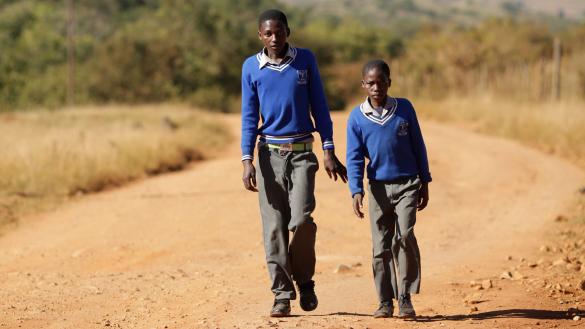
‘It was nice here, growing up,’ Mcolise told me, as we stood in the shade of their mud hut kitchen. ‘It was better then because we had a mother who looked after us. She used to do everything; she cooked for us and bought clothes for us. When she died, I was really broken.’
Mcolise started doing the cooking and cleaning. The boys eat wild vegetables from the hillside and sometime catch birds to cook. Every morning, Mcolise gets himself and his little brother up at 4am, ready to do their chores and leave for school at 5.30am. They rarely eat breakfast. My heart broke for this quiet teenage boy with sadness in his eyes.
At the school the boys attend, at least a third of the pupils are vulnerable or orphaned. The headteacher, Susan Motsa, told me children arrive hungry, unwashed, or without school uniform. One little boy is bathed by a teacher every morning, who combs his hair. ‘It’s so painful to see these children,’ she said. ‘They are traumatised and they trust no one.’ But life can change for children child like Mcolise – and here’s how.
For the last few years, our team in Swaziland have been working with Mcolise’s school to provide God’s word alongside practical help. Children who are traumatised following the death of their parents receive Bible-based counselling. Orphans like Mcolise are trained in how to grow vegetables and are given seeds to get started. We build wooden coops and provide chickens, so the children have eggs to eat. And everyone is handed their own copy of the Bible.
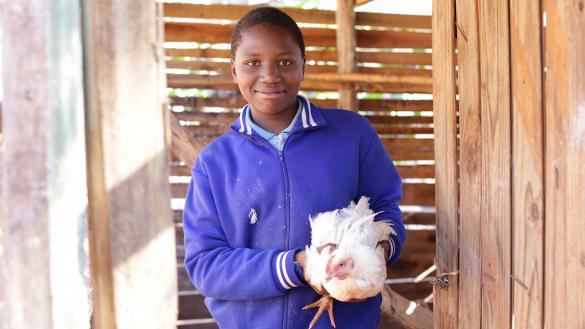
Mcolise and his brother have learned how to grow onions and tomatoes, and are hoping for a good harvest. Both received Bibles – and Mcolise told me, ‘We pray each night together, before we go to bed. When I read the Bible, I feel God loves me.’
This kind of work is only possible because of our supporters. Find out how you can provide a Bible and practical help for a vulnerable child.
Share this:
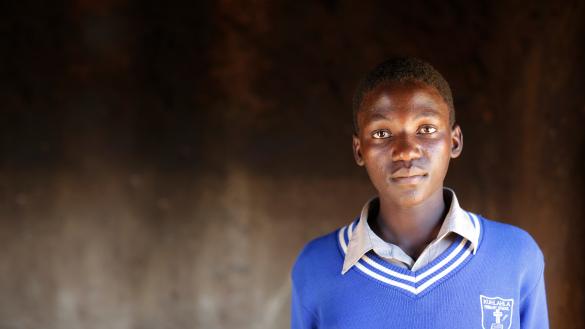
Share God’s love with an orphan in Swaziland
A quarter of all children in Swaziland are orphans. Your gift of £22 can help provide a Bible and practical support to an orphan today.
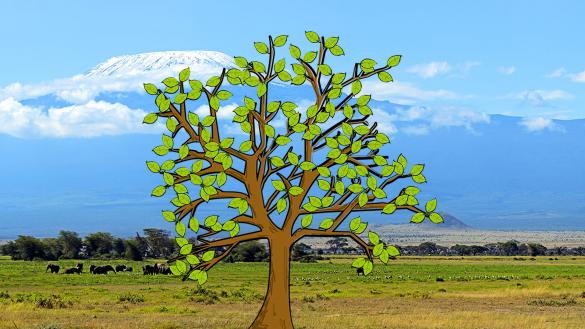
Christianity is growing at an exponential rate in Africa – and so is the need for Bibles. Our aim is to reach the poorest, most troubled families, the people who are at war or those who've been displaced, and the most marginalised communities.
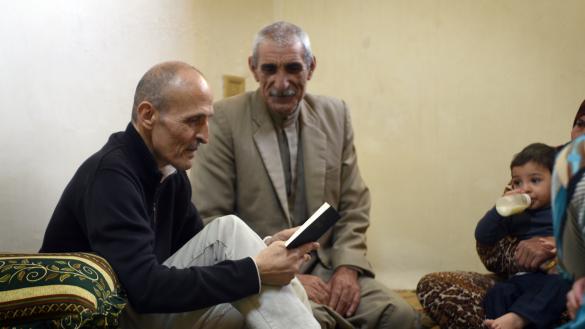
When the crisis in the Middle East began, our staff immediately began meeting the physical needs of refugees, offering mattresses, food and tents. After a while, we realised that refugees had a deeper, unspoken need: they wanted someone to talk to.